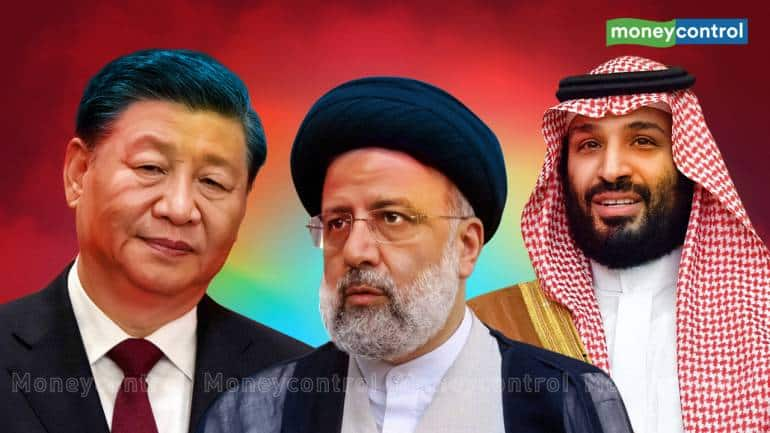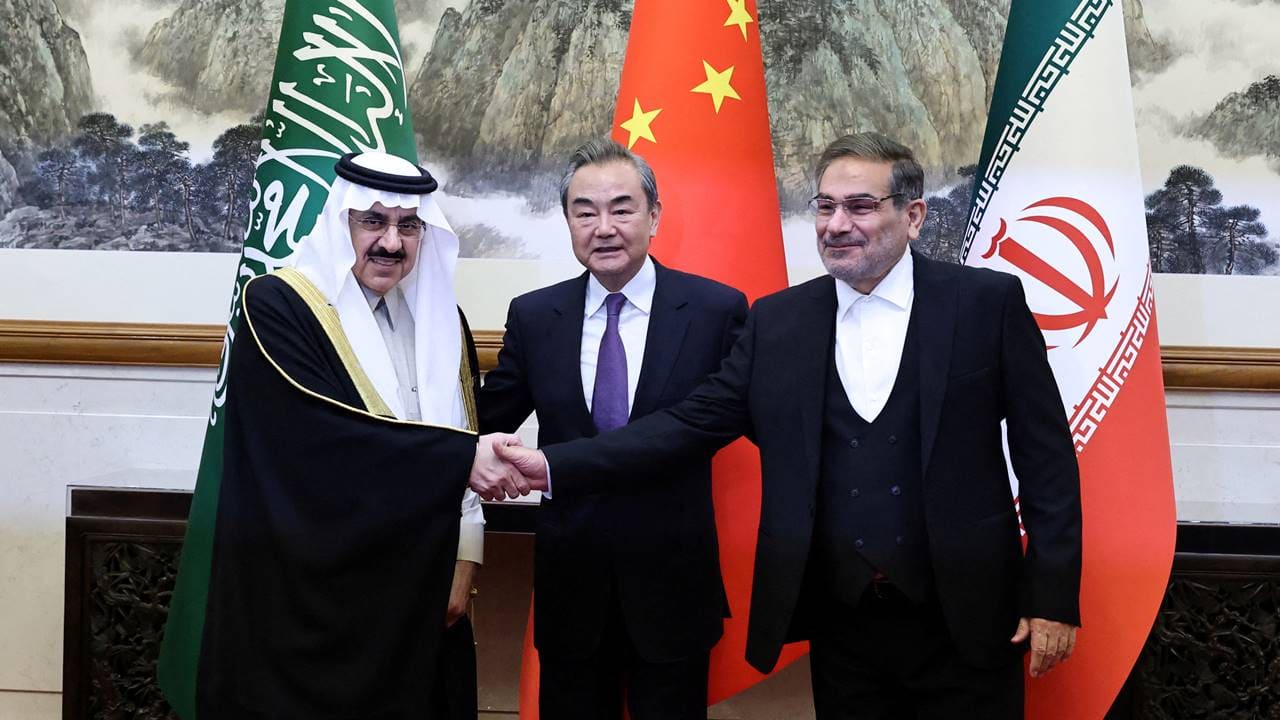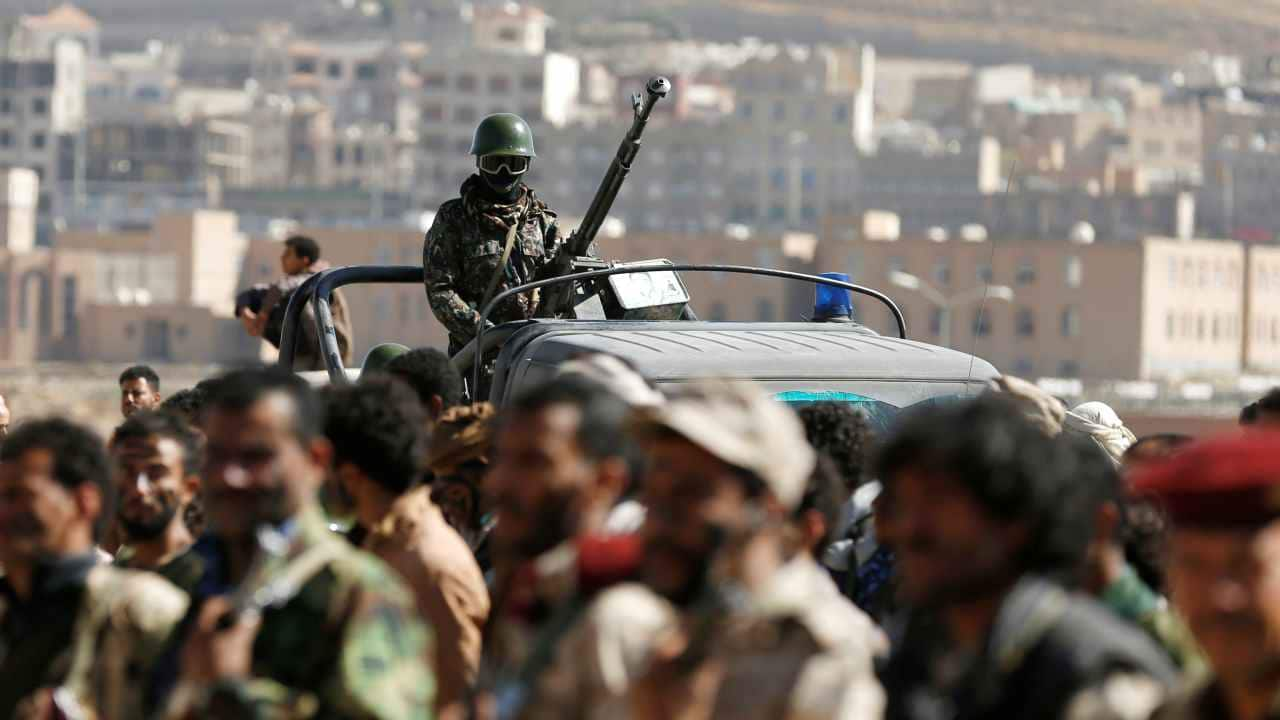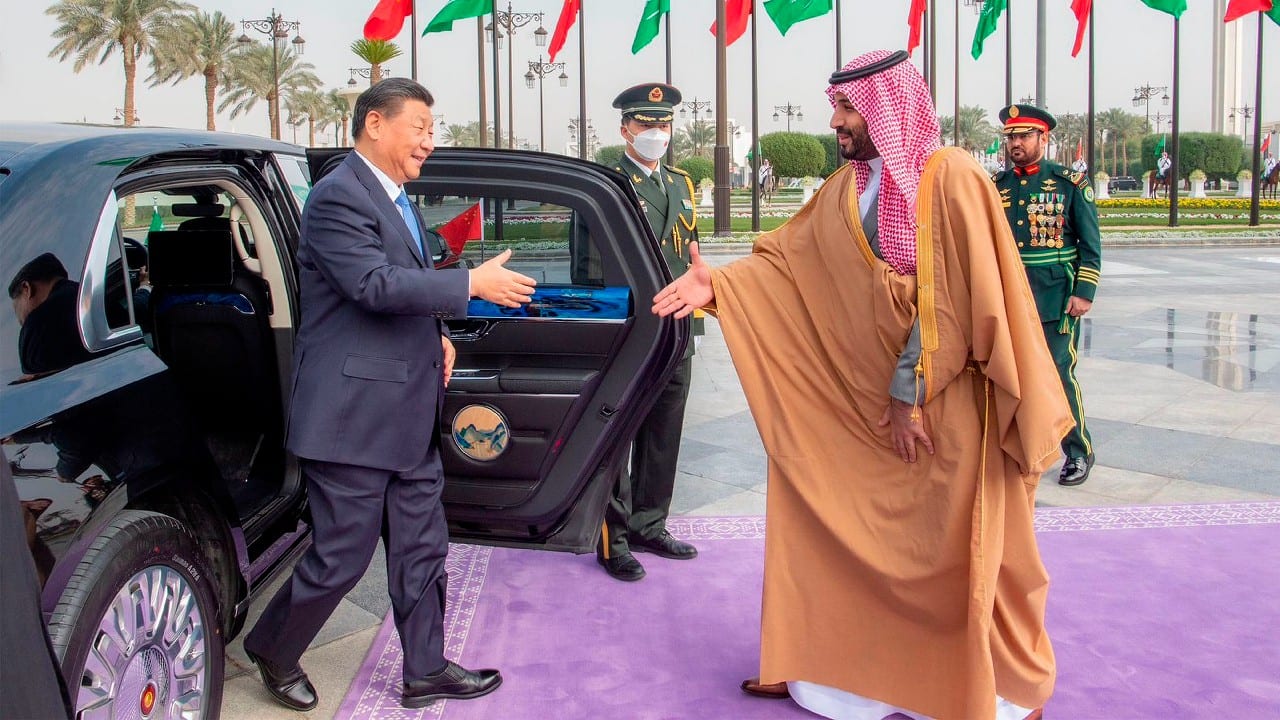
In-Depth | How China gains from Saudi-Iran truce and what it means for India

In-Depth | How China gains from Saudi-Iran truce and what it means for India
China's economic power has begun translating into diplomatic might, as the country has succeeded in brokering truce between the two arch rivals across the Persian Gulf — Iran and Saudi Arabia.
The hostility between Tehran and Riyadh, the two poles representing the Shia and Sunni sects of Islam, has in recent years been manifest in proxy war, covert naval attacks, and targeting of oil installations. A reconciliation comes at a time when Beijing is aiming to enhance its economic engagement in the region.
By playing the role of a successful mediator, China is also attempting to portray itself as a proponent of peace, while simultaneously accusing the United States of "fanning the flames" of the Russia-Ukraine war, and "profiting" from the supply of weaponry, analysts say.
'Immediate success story'
The Chinese government had in February released the Global Security Initiative Concept Paper, which underlined the need to resolve disputes between countries through dialogue and consultation.
"The resolution of the row between these two countries (Saudi Arabia and Iran) through negotiation is an immediate success story, as it comes within a month of China releasing the concept paper," said Sanket Joshi, Research Associate, Delhi Policy Group, while speaking to Moneycontrol.
The March 9 announcement of the China-mediated peace deal, formally referred to as the "trilateral agreement," calls for the resumption of diplomatic relations between Saudi and Iran, restoration of embassies and missions, non-interference in internal affairs, and cooperation in the fields of economy, trade, and investment, among others.
Also Read | Saudi-Iran pact: China takes a bow as mediator but the Riyadh-Tehran rivalry will persist
Diplomatic ties were snapped in 2016, after a mob in Tehran ransacked the Saudi embassy in response to the execution of Sheikh Nimr, a prominent Saudi Shia cleric. The process of rapprochement began in 2021 with Oman and Iraq acting as facilitators, but it failed to move forward for nearly two years.
In December 2022, Chinese President Xi Jinping offered to mediate during an official visit to Riyadh, an unnamed Saudi official told the news agency Reuters, adding that Crown Prince Mohammed bin Salman "welcomed" his proposal.
The truce was hammered out shortly after Iranian President Ebrahim Raisi visited Beijing in February, and an official announcement was made by China's topmost foreign policy official Wang Yi within a few days.
 Wang Yi (centre), a member of the Political Bureau of the Communist Party of China (CPC) Central Committee and director of the Office of the Central Foreign Affairs Commission, Ali Shamkhani, (right) the secretary of Iran’s Supreme National Security Council, and Minister of State and national security adviser of Saudi Arabia Musaad bin Mohammed Al Aiban (left) pose for pictures during a meeting in Beijing, China, on March 10, 2023. (Image: Reuters)
Wang Yi (centre), a member of the Political Bureau of the Communist Party of China (CPC) Central Committee and director of the Office of the Central Foreign Affairs Commission, Ali Shamkhani, (right) the secretary of Iran’s Supreme National Security Council, and Minister of State and national security adviser of Saudi Arabia Musaad bin Mohammed Al Aiban (left) pose for pictures during a meeting in Beijing, China, on March 10, 2023. (Image: Reuters)
"Appearing to facilitate the negotiations adds to Chinese prestige. The not-so-subtle message that China is sending is that while the United States is the preponderant military power in the Gulf, China is a powerful and rising diplomatic presence," stated Jon Alterman, Director, Middle East Program, Centre for Strategic and International Studies.
"This adds to the perception of Chinese power and influence around the world, and contributes to the narrative of a shrinking US global presence," Alterman further said in a note published on the think-tank's website.
Securing economic interests
China's core interests in the Middle East include energy, trade, and investment, analysts say, adding that brokering the Saudi-Iran détente is aimed at securing these interests.
The Iran-backed Houthi rebels of Yemen, who are at war with the Saudi-UAE-led coalition of Gulf countries, have attacked vital oil installations in the kingdom over the past couple of years. "China, being the world's biggest buyer of crude, wants peace and stability in the region to safeguard its energy interests. The Houthis pose a risk," Joshi of Delhi Policy Group said.
Although the two warring sides have desisted from violence despite the expiry of the ceasefire last October, a peace deal between Saudi and Iran is expected to pave the way for the war to be called off in Yemen, experts claim.
 The war between Yemen's Houthi rebels and the Saudi-led coalition, is underway since 2014. As per the UN estimates, over 150,000 people in Yemen have lost their lives (Reuters file image)
The war between Yemen's Houthi rebels and the Saudi-led coalition, is underway since 2014. As per the UN estimates, over 150,000 people in Yemen have lost their lives (Reuters file image)
Riyadh and Tehran, who have accused each other of downing oil tankers in the Persian Gulf, are also said to be battling for influence via their proxy groups in Lebanon and Iraq.
A rapprochement is expected to "de-escalate" the overall tension in the Middle East. This works in China's favour as it will secure its investments and enable an environment that allows trade to flourish, analysts noted.
China's overall investment in the Middle East and North Africa (MENA) region totalled $273 billion between 2005 and 2022, per data shared by the American Enterprise Institute. The bulk of its investments were in Saudi Arabia, according to Arab News, which reported that the kingdom had received nearly $43.5 billion in that time.
The last set of official data, available for the year 2021, shows that annual trade between the two nations touched $87.3 billion, making China the largest trading partner of Saudi Arabia. Chinese exports to the kingdom touched $30.3 billion during the year, whereas imports amounted to $57 billion.
China also accounts for 30 percent of the total trade undertaken by sanctions-hit Iran, per official data released by Tehran in December. In 2022, bilateral trade between the two stood at $15.795 billion, 7 percent higher than the preceding year.
By brokering the détente, China has also burnished its rep as a reliable partner among the Gulf Cooperation Council (GCC) countries, which includes Oman, Kuwait, Qatar, the UAE, and Bahrain, along with Saudi Arabia as the de-facto leader of the grouping.
The GCC member states are not only recipients of Chinese investments, but also consider China as one of the top destinations for parking their investments.
"China is a key market for GCC countries looking to invest in energy, particularly refining, and high-tech development. Aside of the energy sector, Chinese expertise and finance have contributed to the expansion of GCC markets. In recent years, China has integrated the Belt and Road Initiative (BRI) into the GCC countries’ development strategies for infrastructure growth and non-oil sector expansion, including Saudi Arabia’s Vision 2030," said Sujata Ashwarya, Professor, Centre for West Asian Studies, Jamia Millia Islamia.
Saudi Arabia was the largest recipient of China's BRI investments in the first half of 2022, at $5.5 billion, whereas Iran, which is geographically key to the ambitious project, has been promised $400 billion in Chinese investments over a period of 25 years.
"China has repeatedly stated that it regards Tehran and Riyadh as equal partners, and it was critical for Beijing’s interests that the two Middle Eastern capitals maintain some semblance of normalcy," Ashwarya said, adding that by brokering the truce, China has also "demonstrated its willingness to protect its investments and interests."
 Chinese President Xi Jinping (left) was hosted at Al Yamama Palace in Riyadh by Crown Prince Mohammed bin Salman, in December 2022 (AP file photo)
Chinese President Xi Jinping (left) was hosted at Al Yamama Palace in Riyadh by Crown Prince Mohammed bin Salman, in December 2022 (AP file photo)
Setback for India?
The Narendra Modi-led government, over the past nine years, has taken considerable measures towards enhancing ties with Gulf nations. In this backdrop, a section of analysts think that China, which is India's top economic rival, has outmanoeuvred it diplomatically by emerging as the peace-maker .
The talk of a diplomatic setback grew louder after it took a week for New Delhi to react to the development. "We have seen the reports regarding this. India has good relations with various countries in West Asia and we have abiding interests in the region," Ministry of External Affairs (MEA) spokesperson Arindam Bagchi said, in response to a question at a press briefing on March 16.
"The Iran-Saudi rapprochement mediated by China is unquestionably a diplomatic setback for India, and a significant one at that. It is an embarrassment for the government of the day, which has spent a lot of political capital to strengthen ties with the GCC," Ashwarya said.
"India is understandably disappointed that it did not leverage its good relations with Saudi Arabia and Iran, like China did," the Jamia Millia Islamia Professor said, adding that, "despite the current government’s exaggerated claims of foreign policy success, we continue to be a reactive nation, monitoring issues and adjusting our stance as they emerge on the global horizon."
A number of experts, however, disagree that India's position has been weakened vis-a-vis the Gulf region due to China strengthening its diplomatic clout.
"It is too early to state that it’s a diplomatic setback for India, because the Chinese are competing with the US in the Middle-East," independent researcher Sourish Ghosh said, pointing out that India is not as big a stakeholder in the region as the US. "It is definitely a setback for the US, and India needs to be cautious while making its moves," he added.
Some analysts also argued that China's big ticket diplomacy in the region may compel New Delhi to pursue its ties in this geography independently, as Beijing's growing clout may adversely affect groupings such as the I2U2 (India-Israel-US-UAE), and other formations which include Washington.
"This is a China-brokered truce. India has to be careful. To wait and watch is the better position to take for now," Joshi said, adding that one must observe how the détente unfolds considering the unpredictability of the Gulf region.
"There are some important questions left unanswered in the trilateral agreement. Will Iran give up its nuclear programme?" the researcher said, pointing out that Tehran developing a nuclear arsenal is not only an "existential threat" for Israel, but also for Saudi and the UAE.
Raja Gopal Chakraborti, Professor, Department of South & Southeast Asian Studies, Calcutta University, feels India's trade relations with both the Middle Eastern countries will be unaffected by the outcome of the peace deal.
"India maintains good relations with both Iran and Saudi Arabia. Neither their enmity nor their new-found friendship can alter India’s trading relations," Chakraborti said, but added that "Indian policymaking lacks what it takes to establish political command and outmanoeuvre others."
The growing Chinese clout may cast a shadow on some of the Indian infrastructure projects in the region, the professor claimed. For instance, India is developing the first phase of Shahid Behesti Port in Iran's Chabahar and has invested $85 million in the project. "This project may lose some of its shine given the huge scope of Chinese investment," he said.
Even as the world wonders how China's increased involvement in the Middle East impacts its economic and geopolitical competitors, the country is likely to make a dash for a larger role in global affairs.
As Xi, the country's supreme leader, underlined on March 13, four days after the Saudi-Iran détente was announced, China should: "actively participate in the reform and construction of the global governance system."